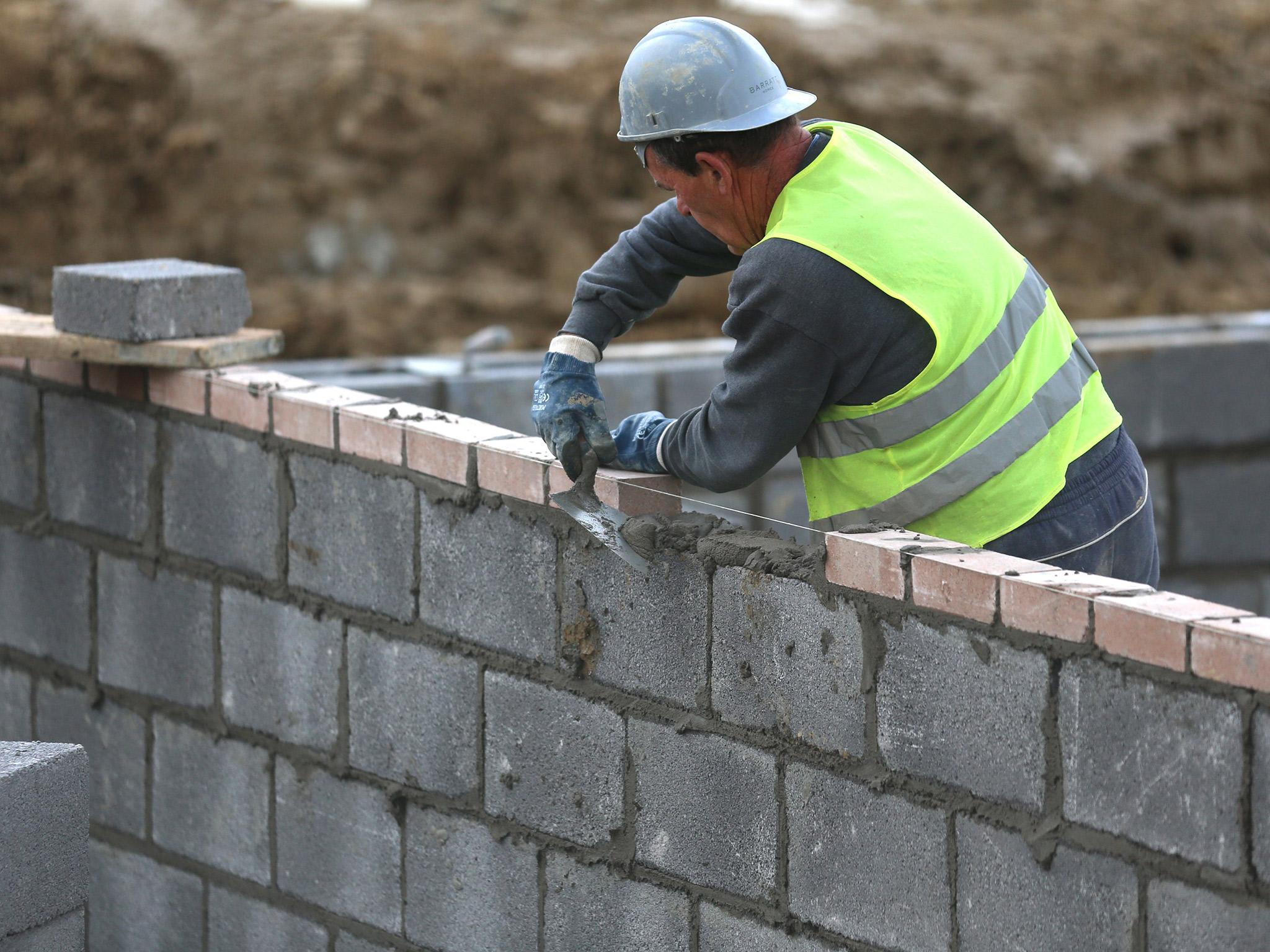Developers will not be allowed to escape promises to build affordable housing, under Labour plans
Housebuilders pledge that 28 per cent of new homes will be 'affordable' – but use a loophole to cut that figure to just 7 per cent, party says

Your support helps us to tell the story
From reproductive rights to climate change to Big Tech, The Independent is on the ground when the story is developing. Whether it's investigating the financials of Elon Musk's pro-Trump PAC or producing our latest documentary, 'The A Word', which shines a light on the American women fighting for reproductive rights, we know how important it is to parse out the facts from the messaging.
At such a critical moment in US history, we need reporters on the ground. Your donation allows us to keep sending journalists to speak to both sides of the story.
The Independent is trusted by Americans across the entire political spectrum. And unlike many other quality news outlets, we choose not to lock Americans out of our reporting and analysis with paywalls. We believe quality journalism should be available to everyone, paid for by those who can afford it.
Your support makes all the difference.Developers would be prevented from wriggling out of promises to build desperately needed affordable homes, under Labour plans seen by The Independent.
The party will get tough with housebuilders who get planning permission on pledges to include a big proportion of lower-cost homes – only to use a loophole to escape the commitments.
The move comes as new figures reveal the true scale of the collapse in affordable housebuilding since the Conservatives came to power. It is almost halved.
Freedom of Information responses have revealed the little-known loophole was largely to blame for the “loss” of 2,500 cheaper homes in just nine cities, in a single year.
Typically, developers pledge that 28 per cent of new homes on a site will be “affordable” – but that figure falls to just 7 per cent after a “viability assessment” is carried out.
They are accused of using their leverage over town halls to argue that market changes mean a development will no longer be profitable without a big drop in the number of lower-cost homes.
Now John Healey, Labour’s housing spokesman, has revealed that the party plans a crackdown that will prevent such promises being “negotiated away”.
“Conservative Ministers have made it easier for developers to dodge their obligations to build affordable housing,” he told The Independent.
“It’s a big part of the reason why affordable housebuilding is now at a 24-year low.”
Labour’s proposals include:
* Giving local authorities beefed-up powers to prevent housebuilders backing out of commitments
* Allowing developers to be publicly identified if they attempt to do so
* Giving councils powers to “claw back” excess profits if developments do not include the required amount of affordable housing
* Offering the “carrot” that developments that do meet affordable housing promises will be fast-tracked
Mr Healey added: “Changing the rules to capture more of the value created by the granting of planning permission will not only help fund new affordable housing, but help increase local support for new housing too.”
Councils can require developers to set aside homes as affordable using section 106 agreements, which recognise the impacts on a local area.
But figures from Oxford Brookes University show the number of affordable homes provided that way, for purchase and rent, plunged from 29,065 in 2009-10 to just 16,452 in 2015-16 – a fall of 43 per cent.
Even that figure includes the widely ridiculed definition of “affordable rent”, which means homes at 80 per cent of the local market cost.
Research by the housing charity Shelter found that viability assessments have been used to slash affordable housebuilding by 79 per cent, compared with council targets.
In Manchester, Birmingham and parts of London, they made up less than 1 per cent of homes being built, the freedom of information responses showed.
Meanwhile, Shelter said, profits at the three biggest builders having quadrupled since 2012 to £2.2bn.
The Chancellor, Philip Hammond, is under growing pressure to act on Britain’s housing crisis in this month’s Budget, after ministers admitted the current system is broken.
Conservative MPs acknowledge that much of Labour’s surge at this year’s general election is explained by resentment over the shortage of affordable homes.
In her party conference speech, Theresa May promised that “help is on the way”, but the £2bn policy she announced was widely seen as feeble.
It quickly emerged that it will deliver only 5,000 extra homes a year, on top of the existing five-year programme between 2016 and 2021.
And councils will not be allowed to borrow more money for housebuilding, with the strongly resented strict cap remaining in place.
Sajid Javid, the Communities and Local Government Secretary, has called for £50bn borrowing for housing infrastructure, but Mr Hammond hinted it would be rejected.
The Government has acknowledged that the housing viability assessment system “is not working”, but has rejected suggestions it should be scrapped.
Instead, a consultation has suggested that local plans should be used to set out how developers contribute to affordable housing, tested those commitments at an earlier stage.
Alok Sharma, the housing minister, told MPs: “Clearly the system as it is does not work.
“We are proposing a set of improvements we believe will make it work better. Let’s see what views come forward as a result of the consultation.”
Join our commenting forum
Join thought-provoking conversations, follow other Independent readers and see their replies
Comments